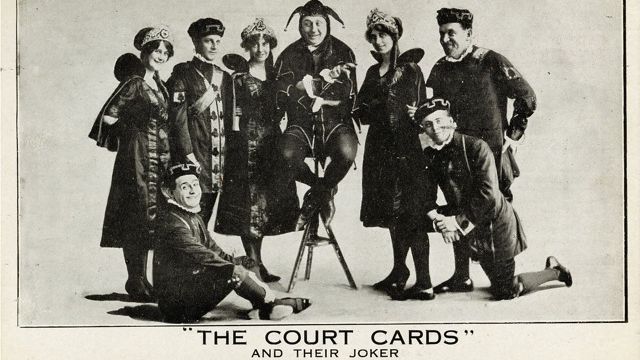Tales of Travelling Mummers
In his research, Stage Whispers editor Neil Litchfield has found many tales of the exploits of early theatrical tours around regional Australia and New Zealand.
Stage Whispers wil add to this feature as new anecdotes are unearthed.
The Referee - May 5, 1897
The woes of a travelling mummer are many, and often bitter (says Melbourne PUNCH). The wife of a certain manager on tour in the provinces delighted her husband by presenting him with a son and heir to his theatrical business. The happy papa, who was experiencing a successful season, honored the event by champagning the whole company before the performance. The leading lady, who was a stranger to that delightful beverage, drank deeply, and on making her appearance presented the audience with an unrehearsed effect by uttering a weird shriek and falling into the big drum, which, with a fiddle and piano, made up the orchestra, and bursting that and the show up generally. That manager's wife has firmly made up her mind never to add to her family again while travelling.
The Bulletin - At Poverty Point - June 14, 1923 - Page 36
"H.E.R.": I saw an Australian-made pitcher at Yeppoon (Q.) 27 years ago. It arrived per waggonette, on one side of which was a printed invitation to "Come and Hear the Wonderful New Invention, the Phonograph," and on the other a promise that "An Animated Picture of Local Life Will Be Shown." The imagination of the whole town was fired, and everybody flocked to the schoolhouse to listen and behold. For a start the "Professor" gave us a 30-minute lecture on the possibilities of the talking-machine. Then we heard the thing in action - a weird, scratching, rasping noise, like the turning of a rickety windlass. Another 30 minutes listening to the "Professor's" explanation of how pictures were made to move, and then we saw the local film. It was projected from an ordinary magic-lantern, and proved to be the black silhouettes of a number of bulldog-ants, which the showman had captured from a local ant-nest and imprisoned, between two glass slides, leaving space enough for the ants to move. When the glass grew hot the ants went mad and killed each other in their little hell. The milk buckets were rattling when the "Professor" moved on next morning.
The Bulletin - At Poverty Point - February 12, 1925 - Page 37
"Flaming Youth": George Kennington, stage-manager for the J.C.W. "Sally" co. is a native of Napier (M.L.). He had some rough experiences with small touring ventures in Massey's islands before he found his niche. A show he was with was one fare short for its next train journey. A derelict piano-case at the back of the theatre gave an idea. Lots were drawn to see which actor should travel inside the case in the truck with which the obliging M.L. Railway Department provided travelling cos.; and the lot fell to the old man of the crowd, who was consoled for his discomfort by being given a couple of bottles of beer. Unfortunately, a porter at the next station discovered the trick; and, when he and his mates insisted upon helping to unload the co.'s goods, that piano-case came in for some rough tumbling. When released the old man was justly indignant. "by gad, sir!" he said to the harassed manager, "I wouldn't do it again for less than a dozen bottles of beeah."
The Bulletin - Poverty Point - February 11, 1926 - Page 36
"Cæsar's Ghost": A cocky in the Gore district (M.L.) drove in to see the show, and, having made the company's acquaintance, took a couple of us to spend Sunday on his model farm. He told us that he had once employed a stranded actor, who, being a cheerful cuss, took adversity in a good spirit - or probably didn't regard a steady job as adversity after travelling with a touring show - and made himself liked while he stayed and regretted when he went. "He had a way of giving the cows queer names when he milked them, and they stuck," the farmer explained. "This is Juliet, and that's Desdemona, and there's Olivia, Rosalind, Beatrice and Katherine." A question about the bulls naturally followed. They were Othello and Hamlet.
The Bulletin - January 6, 1927 - Page 34
"De Oriel": All of the little halls in the "smalls" of New South are not labelled Schools of Arts. The village of Home Rule, via Gulgong, has a public hall registered as "The Wyaldra Theatorium." While we were at Turriff (Vic.) a cyclone blew the tin hall over; then the wind changed and blew the hall back on to its feet again - and we showed that night.

